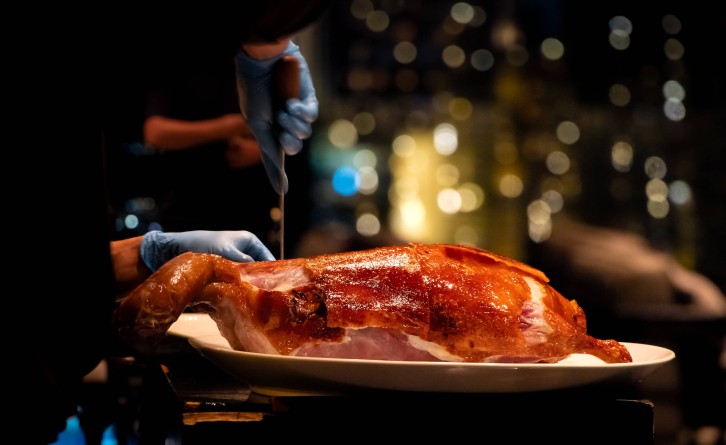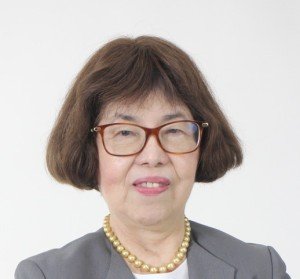Corporate name vs. trademark registration
31 March 2025

Corporate name vs. trademark registration
This is not a case of confusing similarity. This is a case of who is the real owner of the trademark “Gloria Maris Shark’s Fin Restaurant”, being claimed by both a corporation and its former shareholder. In the bustling culinary scene in the Philippines, particularly Chinese cuisine, Gloria Maris Shark’s Fin Restaurant stands out as a favorite by many diners, hence, the battle as who has the better claim to the mark. In a landmark decision, the Supreme Court ruled in favour of the petitioner marking the end of a protracted trademark dispute (Gloria Maris Shark’s Fin Restaurant, Inc. vs. Pacifico Q. Lim G.R. No. 264919-2, May 20, 2024, uploaded to the Supreme Court website on October 2024).
Background
Petitioner Gloria Maris Shark’s Fin Restaurant, Inc. (Gloria Maris or the petitioner), a well-established name in the Filipino dining landscape, found itself embroiled in a controversy when respondent Pacifico Q. Lim, a former incorporator and director at Gloria Maris, registered the trademark “Gloria Maris Shark’s Fin Restaurant” in his own name. Lim’s registered mark is shown below:
This move was made without the consent of the petitioner, sparking a decade-long legal battle over the rightful ownership of the name that symbolized years of goodwill and brand identity.
By his account, in 1993 Lim offered a proposal to the owners of a restaurant located on the premises of the Cultural Center of the Philippines (CCP), which was about to go out of business. He claimed he was engaged in construction and in the restaurant business, and that prior to the establishment of Gloria Maris, he had already concocted the name Gloria Maris Shark’s Fin Restaurant and its logo, comprising of the fin of a shark enclosed in an irregularly shaped plate. After several meetings, Gloria Maris Shark’s Fin Restaurant, Inc. was registered with the Securities and Exchange Commission (SEC) on January 26, 1994, with five incorporators, including Lim. Gloria Maris hired a graphic artist to design the Gloria Maris trademark, and upon approval by its board of directors, the latter entrusted to Lim to secure the registration of the Gloria Maris trademark with the Intellectual Property Office of the Philippines (IPOPHL).
In 2005, unknown to petitioner, and after leaving Gloria Maris, Lim registered the following trademarks with the IPOPHL in his own name: “GLORIA MARIS WOK SHOP & DESIGN,” “GLORIA MARIS DIMSUM KITCHEN WITH LOGO AND DESIGN,” and “GLORIA MARIS SHARK’S FIN RESTAURANT AND LOGO,” and ventured into franchising the concept of the Gloria Maris restaurant to several companies without the consent of the petitioner.
Gloria Maris discovered what Lim had done, and in 2009 filed petitions for cancellation of the three trademark registrations with the Gloria Maris name before the Bureau of Legal Affairs (BLA) of the IPOPHL on the ground that the registrations were secured in bad faith.
Decision of the BLA
The BLA dismissed all three petitions for cancellation filed by Gloria Maris. Relying on the evidence presented by the respondent that he had coined the marks prior to Gloria Maris’ SEC registration, corroborated by the testimony of the graphic artist Rodriguez who claimed that Lim hired him and it was only Lim that he dealt with in connection with the trademark design, the BLA ruled that Gloria Maris was not able to overcome the prima facie presumption of the validity of the trademark registrations. Dissatisfied with the BLA decision, Gloria Maris appealed to the Office of the Director General (ODG).
Decision of the ODG
On August 6, 2019, the ODG issued three decisions reversing the rulings of the BLA based on the following grounds: (i) petitioner has been using the name Gloria Maris as part of its corporate name and as the identity of its business for over 10 years prior to Lim’s registrations (ii) there was nothing in the witness’ Rodriguez affidavit that categorically stated that Lim coined or created the Gloria Maris name. Aggrieved, respondent Lim elevated the matter before the Court of Appeals.
Decision of the Court of Appeals
The Court of Appeals reversed the decisions of the ODG and reinstated the decisions of the BLA on two grounds, namely: (i) the evidence presented by Gloria Maris such as its version of the trademark Gloria Maris, photographs of said trademark as used in its restaurants, its articles of incorporation, and the testimony of Menguito, one of the five original incorporators of Gloria Maris, were insufficient to overcome the prima facie presumption of Lim’s ownership of the marks, (ii) Gloria Maris is barred by laches knowing that Lim had been using the mark Gloria Maris but only filed its complaint years later. Dissatisfied with the court’s decision, Gloria Maris appealed to the Supreme Court, the final arbiter of disputes.
Decision of the Supreme Court
The Supreme Court, in its decision promulgated on May 20, 2024, delved deeply into the intricacies of trademark law and bad faith registrations, reversed the Court of Appeals and ruled in favour of Gloria Maris, finding that the following circumstances proved that Lim’s registration of the subject trademarks was done in bad faith and unlawfully registered:
-
Lim registered the subject trademarks with full knowledge that the mark and the name “Gloria Maris” had been used by petitioner for more than 10 years;
-
Lim not only knew of Gloria Maris’ use of the mark and name but he was one of the incorporators and director of the petitioner’s company;
-
It was bad faith on the part of Lim to reap the fruits of the goodwill built by the Gloria Maris brand when he registered the subject marks in his own name when it was the corporation as a whole that built and established the Gloria Maris brand.
On the issue of laches, the Supreme Court ruled that it is an equitable defense the application of which is evaluated by fair consideration, and as such it cannot be used to defeat justice or to condone fraud. Citing Section 151 of the IP Code which expressly states that the registration of a mark may be cancelled at any time, if among others, the registration was obtained fraudulently or is contrary to the provisions of the IP Code, the Supreme Court held that laches cannot run against Gloria Maris since Lim obtained the registrations unlawfully.









